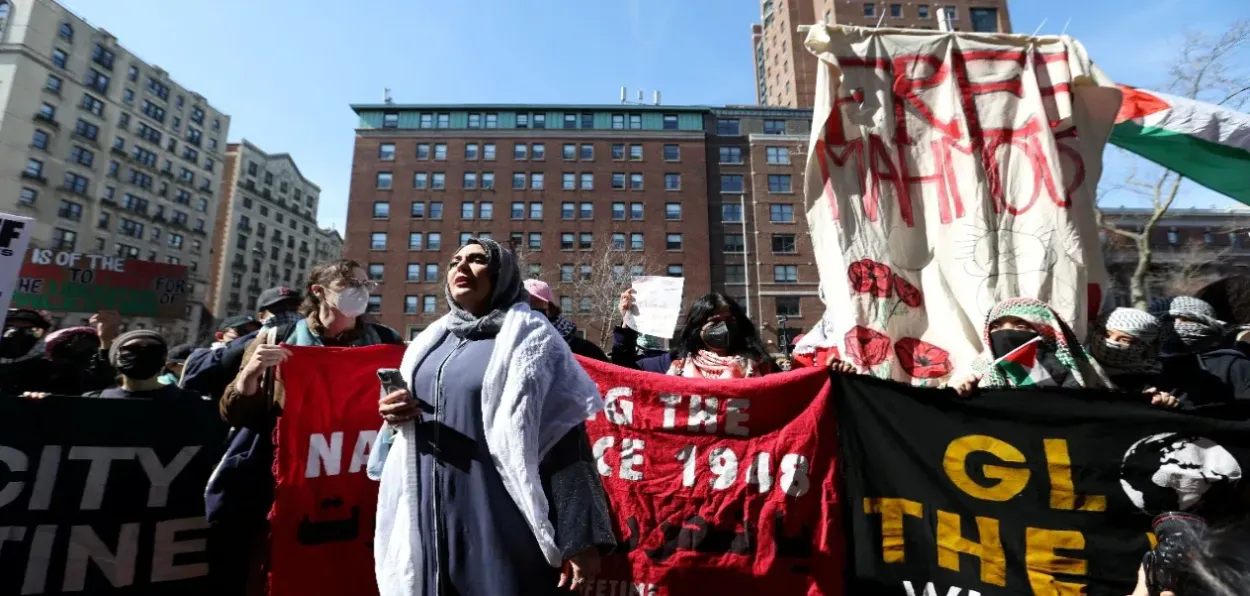
Khalid Khurram
The November 10 suicide bombing in Delhi has once again underscored an uncomfortable but proven truth: the path to violent extremism often begins not with weapons, but with words—with an ideological literary system that distorts religion into a political weapon. Throughout South Asia, a substantial body of politicised Islamic writing produced over the past century remains readily available in print and digital formats.
"Mujahid's Azan," "Khuda aur Banda," and similar texts—widely circulated on social media, messaging platforms, and low-cost publishing networks—continue to influence the thinking of young readers, especially in sensitive regions like Jammu and Kashmir.
These writings were products of a specific political time. They represent ideological reactions rather than classical Islamic scholarship. Yet, lacking context, they are often read as authoritative interpretations of the religion. Their repeated consumption has contributed to the gradual radicalisation of a small but significant number of young people. Therefore, today's policy challenge is not simply to combat extremist violence, but to confront the intellectual soil in which it thrives.
To do this, we must confront a central fact: the ideological narratives propagated by such literature stand in direct contradiction to Islam's core moral message. The Quran's emphasis on human dignity ("We have honoured the children of Adam" - 17:70) and its defence of freedom of conscience ("There is no compulsion in religion" - 2:256) form the foundation of its worldview.
Historians recognise Prophet Muhammad's rule in Medina as one of the earliest constitutional models of pluralism, where diverse religious communities were guaranteed equality and protection. The major schools of Islamic thought, from Imam Abu Hanifa to Imam Ghazali, articulate a tradition based on reason, empathy, coexistence, and justice.
The problem is not that extremist texts exist; they have always existed. The problem is that today they circulate far more widely—and far more quickly—than balanced, evidence-based scholarship. In the digital information marketplace, fringe interpretations gain immense visibility. Young people are increasingly encountering religion through YouTube propagandists, Telegram channels, overly simplistic memes, and algorithm-driven feeds that reward outrage over nuance. Without an interpretive foundation, complex theological ideas are reduced to slogans.
This is precisely where universities, especially in Jammu and Kashmir, must intervene. They are uniquely positioned to respond to this challenge not through force, but through intellectual leadership. A credible counter-narrative cannot emerge from administrative orders; it must emerge from the country's knowledge institutions.
What is needed is a structured academic intervention. Departments of religious studies, philosophy, Islamic studies, political science, history, and sociology should conduct extensive research on the ideological literature that shapes youth perceptions. This includes mapping the historical contexts in which these texts were produced, separating standard theology from political polemics, and highlighting the internal diversity of Islamic intellectual traditions. Such scholarship will expose the selective interpretations and out-of-context quotations on which fundamentalist narratives rely.
Additionally, universities should begin producing accessible counter-literature. In the current information environment, academic books alone cannot shape public discourse. Shorter monographs, policy briefs, interpretive essays, digital modules, podcasts, and fact-based videos based on Quranic ethics and classical scholarship are essential to ensure that young people encounter authoritative, humane readings of Islam. This requires institutional investment, dedicated research groups, and university-led outreach strategies.
Equally important is reviving Kashmir's own intellectual heritage and bringing it into the mainstream. The Valley's spiritual tradition, shaped by Lal Ded, Nund Rishi, and Sheikh Nuruddin, offers a unique and deeply rooted model of coexistence. Their teachings on compassion, human equality, and shared belonging possess cultural validity that imported ideologies lack. Universities should document, research, and disseminate these traditions through curriculum, public lectures, and community programs. A region's own heritage can counter radical ideologies more effectively than external interventions.
From a policy perspective, this intellectual effort must be integrated into a broader framework of counter-radicalisation. The state's security response must be complemented by a response from the educational sector. Only a holistic strategy—combining policing, pedagogy, and public discourse—can address the problem at its root. India's pluralistic foundation provides a conducive environment for such an integrated approach, but the academic component has so far been the weakest link.
If universities embrace this responsibility, its impact will extend far beyond the campus walls. An informed student is not only less susceptible to radicalism but also becomes a disseminator of balanced understanding in society. A classroom that teaches critical thinking and relevant reading becomes a long-term investment in national security.
ALSO READ: Racing prodigy Rifah Taskeen holds seven records at the age of 15
The fight against extremist ideology will not be won through sanctions or crackdowns alone. It requires an intellectual offensive—grounded in scholarship, supported by policy, and communicated through accessible public engagement. Reclaiming the Islamic principle of coexistence is not merely a religious obligation; it is a national imperative. And the institutions best equipped to lead this battle of ideas are our universities.
Dr Khalid Khurram is a Kashmir-based educationist
